Your recursive code has exponential runtime. But I don't think the base is 2, but probably the golden ratio (about 1.62). But of course O(1.62^n) is automatically O(2^n) too.
The runtime can be calculated recursively:
t(1)=1
t(2)=1
t(n)=t(n-1)+t(n-2)+1
This is very similar to the recursive definition of the fibonacci numbers themselves. The +1 in the recursive equation is probably irrelevant for large n. S I believe that it grows approximately as fast as the fibo numbers, and those grow exponentially with the golden ratio as base.
You can speed it up using memoization, i.e. caching already calculated results. Then it has O(n) runtime just like the iterative version.
Your iterative code has a runtime of O(n)
You have a simple loop with O(n) steps and constant time for each iteration.
